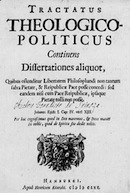
Source: Theologico-Political Treatise - Chapter IV - of the Divine Law
Spinoza's Chapter 4. – the more we know of nature the more we know of (Deus sive Natura) (Page 2)

Spinoza writes of what he calls the Divine Law. The short explanation of Spinoza's concept of Divine Law is understanding and love of (Deus sive Natura). It is called Divine not because it is issued but, he explains, because it refers to (Deus sive Natura).
He is at pains to present a more detailed explanation. 1) The intellect is the best part of human nature. 2) The highest good is to perfect it because that is what is most profitable to us. 3) Since without (Deus sive Natura) nothing can exist. It follows that all natural phenomena involve and express (Deus sive Natura). And so the greater our knowledge of the natural world the more we know (Deus sive Natura) and that is our highest good. And 5) man is at his highest blessedness when he achieves the intellectual knowledge of (Deus sive Natura).
Comment:
We have here Spinoza's great concept of the relationship between man and the cosmos; the more we know of natural phenomena the more we know (Deus sive Natura) and this is the way to blessedness. This is almost a redundancy. To understand more of nature is to know more of Nature except that Spinoza has previously made a distinction between natura naturans and natura naturata; nature becoming (process) and nature as begotten (things). With this emphasis on accumulating knowledge of natural phenomena it is no wonder that he is the darling of scientists.